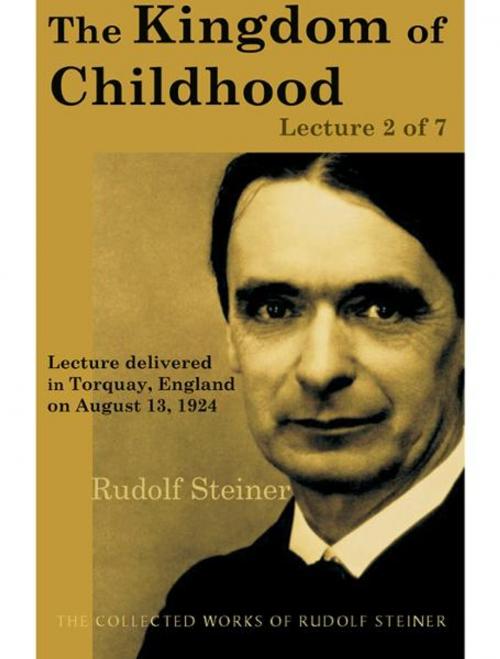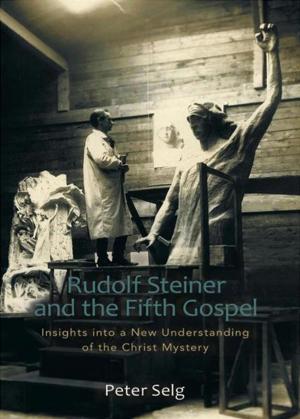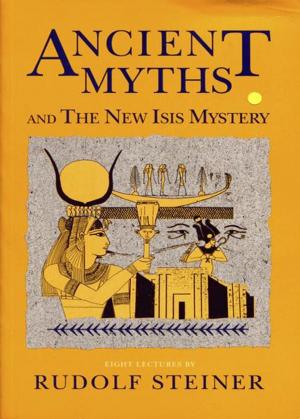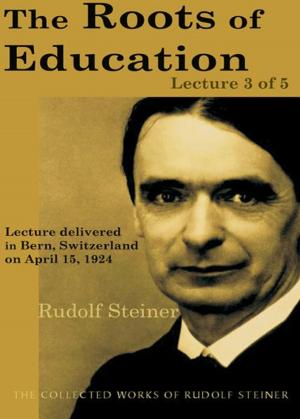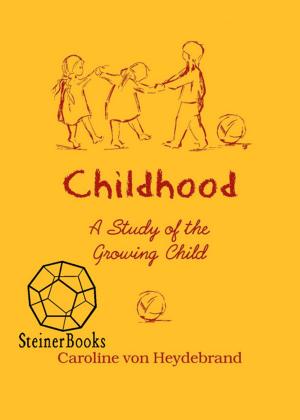The Kingdom of Childhood: Lecture 2 of 7
Nonfiction, Reference & Language, Education & Teaching, Educational Theory, Philosophy & Social Aspects| Author: | Rudolf Steiner | ISBN: | 9780880107709 |
| Publisher: | Steinerbooks | Publication: | June 1, 1995 |
| Imprint: | SteinerBooks, Collected Works 311 | Language: | English |
| Author: | Rudolf Steiner |
| ISBN: | 9780880107709 |
| Publisher: | Steinerbooks |
| Publication: | June 1, 1995 |
| Imprint: | SteinerBooks, Collected Works 311 |
| Language: | English |
This lecture is part of the collection "The Kingdom of Childhood" by Rudolf Steiner. Steiner (1861-1925) was an Austrian philosopher, social reformer, architect, and esotericist. He gained initial recognition as a literary critic and cultural philosopher. At the beginning of the 20th century, he founded a spiritual movement, Anthroposophy. He is considered the father of Waldorf education, biodynamic agriculture, anthroposophical medicine and spiritual science. In first epoch of life child is wholly sense organ. Nature of childs environment and conduct of surrounding adults of paramount importance. Detailed observation of children and its significance. In second epoch, seven to fourteen, fantasy and imagination as life blood of all education, e.g., in teaching of writing and reading, based on free creative activity of each teacher. The child as integral part of the environment until nine. Teaching about nature must be based on this. The higher truths in fairy tales and myths. How the teacher can guide the child through the critical moment of the ninth year. The entire Collected Works of Rudolf Steiner are available from SteinerBooks.
This lecture is part of the collection "The Kingdom of Childhood" by Rudolf Steiner. Steiner (1861-1925) was an Austrian philosopher, social reformer, architect, and esotericist. He gained initial recognition as a literary critic and cultural philosopher. At the beginning of the 20th century, he founded a spiritual movement, Anthroposophy. He is considered the father of Waldorf education, biodynamic agriculture, anthroposophical medicine and spiritual science. In first epoch of life child is wholly sense organ. Nature of childs environment and conduct of surrounding adults of paramount importance. Detailed observation of children and its significance. In second epoch, seven to fourteen, fantasy and imagination as life blood of all education, e.g., in teaching of writing and reading, based on free creative activity of each teacher. The child as integral part of the environment until nine. Teaching about nature must be based on this. The higher truths in fairy tales and myths. How the teacher can guide the child through the critical moment of the ninth year. The entire Collected Works of Rudolf Steiner are available from SteinerBooks.
